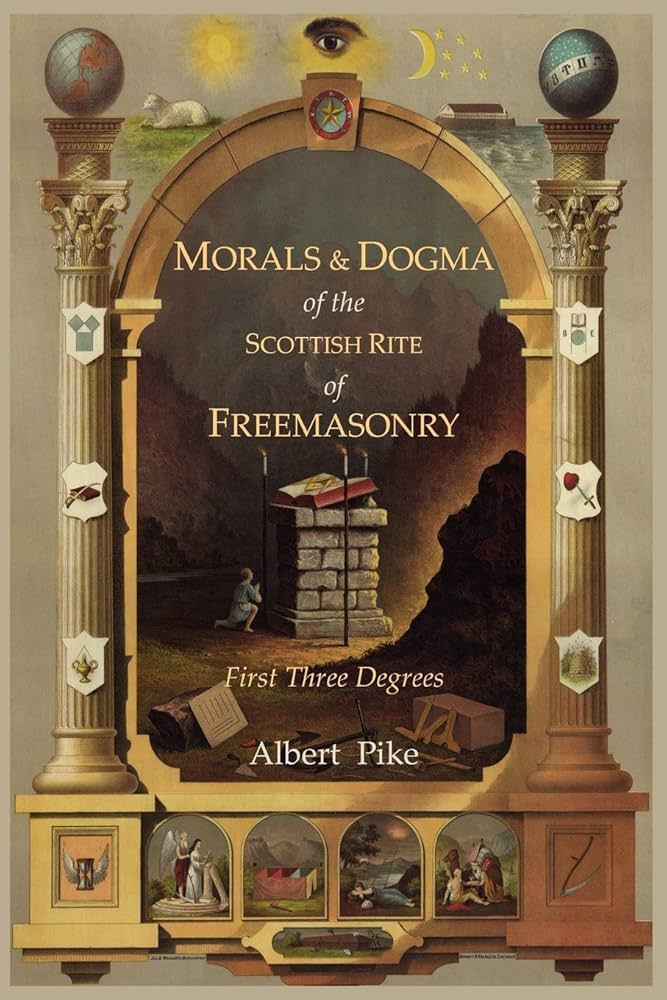
I travel quite a bit for work, and there is a pharma plant that I seem to work at for at least a few weeks every year since 2015. One constant at this facility is a gentleman by the name of Ruben. Ruben is always in high spirits and fun to converse with. The last few times I have worked at his plant he has mentioned this book. I had done a quick Google search on the author and was somewhat put off from reading the book. The author, Albert Pike, was a civil war general for the confederacy and there are definitely some questionable ties to his name, but the fact that Ruben, who I consider a great human being, kept mentioning this book led me to go ahead and finally read it.
Pike was originally from New Hampshire and attended Harvard for a time, but did not graduate. It is clear from his writing that he is very intelligent, although, mostly self-taught. He worked as an attorney before the civil war and is know for helping to defend the rights of native Americans. This was a stance that was likely unpopular with the majority of the populace while Pike was doing it. As the title of the book might suggest, Pike believed strongly that moral behavior was the backbone of a successful society, particularly in government leadership roles. He also notes that the vast majority of these roles are not held by moral or honest incumbents. Too many leaders without morals, will lead to an eventual societal decline and collapse.
Largely, when Pike speaks of morals, he is referring to behavior that aligns with Christian teachings. He also specifically mentions that prejudice is immoral. This coupled with his frequent defense of native Americans makes me question the true motives of the American civil war. I do not believe it was as black and white, forgive the pun, as slavery versus anti-slavery. Nothing is his writings would suggest favoring slavery, in fact, everything Pike writes, when taken literaly, opposes slavery. It promotes an organization outside of the mainstream, freemasonry, that serves to keep humanity headed in a fair, just, and proper direction that aligns with God and nature.
The one thing that really strikes me as odd is the last few sections of the book. Pike explains that nothing in the book is as it seems and true meanings are hopelessly hidden within the text, so maybe the internet description of the man is a more accurate picture of him than his writings? It appears that I will likely never know. Anyway, this was an interesting read. Given its initial publication date of 1871, I feared the language in it may be hard to follow in modern times, but this is not the case. The book is quite readable, despite its age, and oddly prophetic with regard to modern politics.

